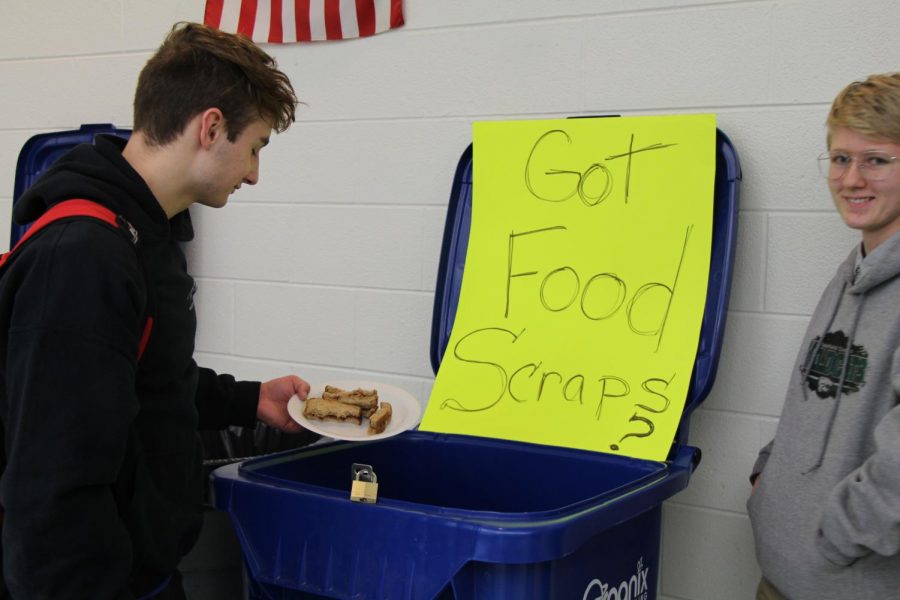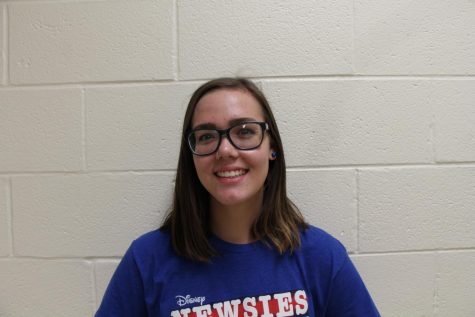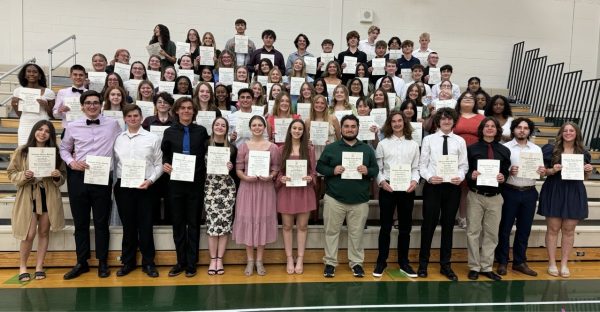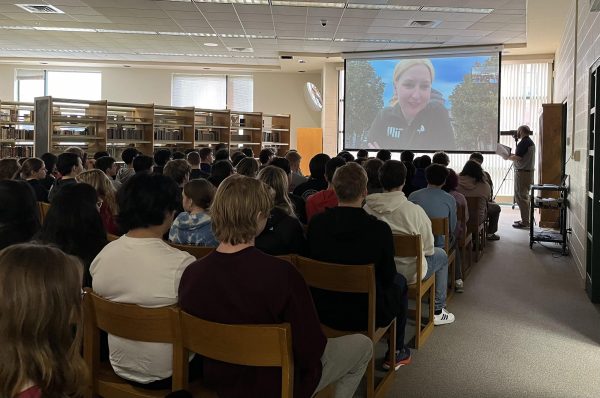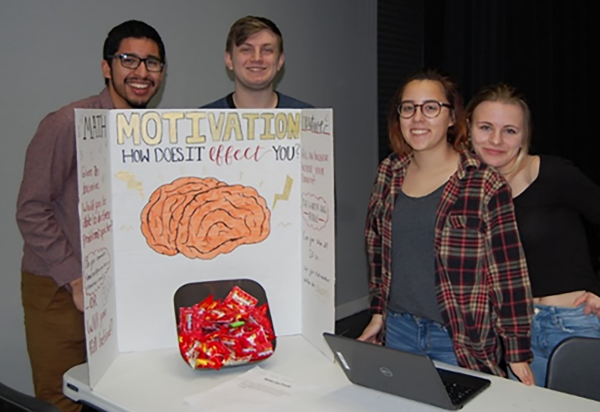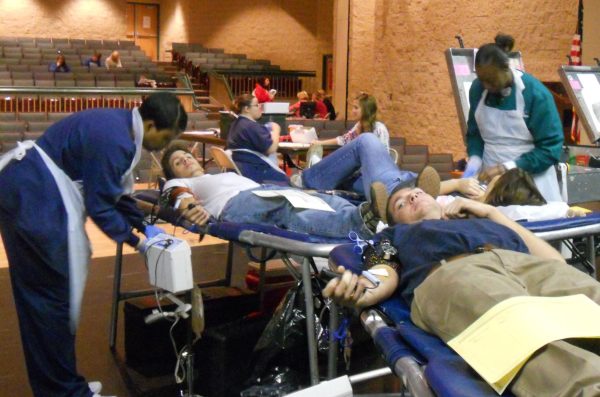Students pilot compost program
Senior Cole Schreiber deposists his food scraps in the compost bin. Only two of the four Plainfield high schools are participating in the pilot program.
February 8, 2019
The cafeteria now has extra garbage bins, but the contents of these will not be heading to the dump. Rather, the food scraps collected in the composting bin will be sent to a composting center where they will be repurposed.
“That organic waste, namely food and some paper, can be composted and turned into soil or fertilizer,” Joan O’Keefe, an Environmental Educator at Will County Land Use Department, said.
Plainfield East will also be participating in the pilot program. The composting project within the high schools only accepts food scraps such as fruit peels or sandwich crusts as of now.
“Anything you can eat, a composter can eat, too!” Cole Gordner, senior, said.
If the composting program is well received, it may be expanded in the future to include paper waste products too.
“In general, you can compost paper and some cartons” senior Casey Oskroba said.
O’Keefe met with the school district in the fall to discuss the possibility of a two-week composting trial period. However the bins will remain the entire semester because Will County is covering the cost of picking up and transporting the food, subsidized by a grant received from Illinois Counties Solid Waste Management Association.
Composted items do not always go directly to composting centers, depending on what the intended use is.
“In some cases, this is immediately taken to a hog farm for food,” Deb Pohlmann, science teacher, said.
In addition to the high school composting project, the County also leads initiatives to reduce garbage through education and homeowner collection events.
“Food waste accounts for 20 to 30 percent of what is in landfills,” O’Keefe said. “Compost is both a recycled material and it’s good to put in your garden.”
Composting not only keeps food waste out of landfills, it also contributes to a more productive environment.
Composted materials help new plants grow and helps soil retain water.
Composting also helps minimize methane gas created from decomposing landfill waste. Methane, a common greenhouse gas, can have disastrous effects such as carbon monoxide poisoning.
“With composting in general, you can make your own food bins at home and use that to compost in your garden” Gordner said.



